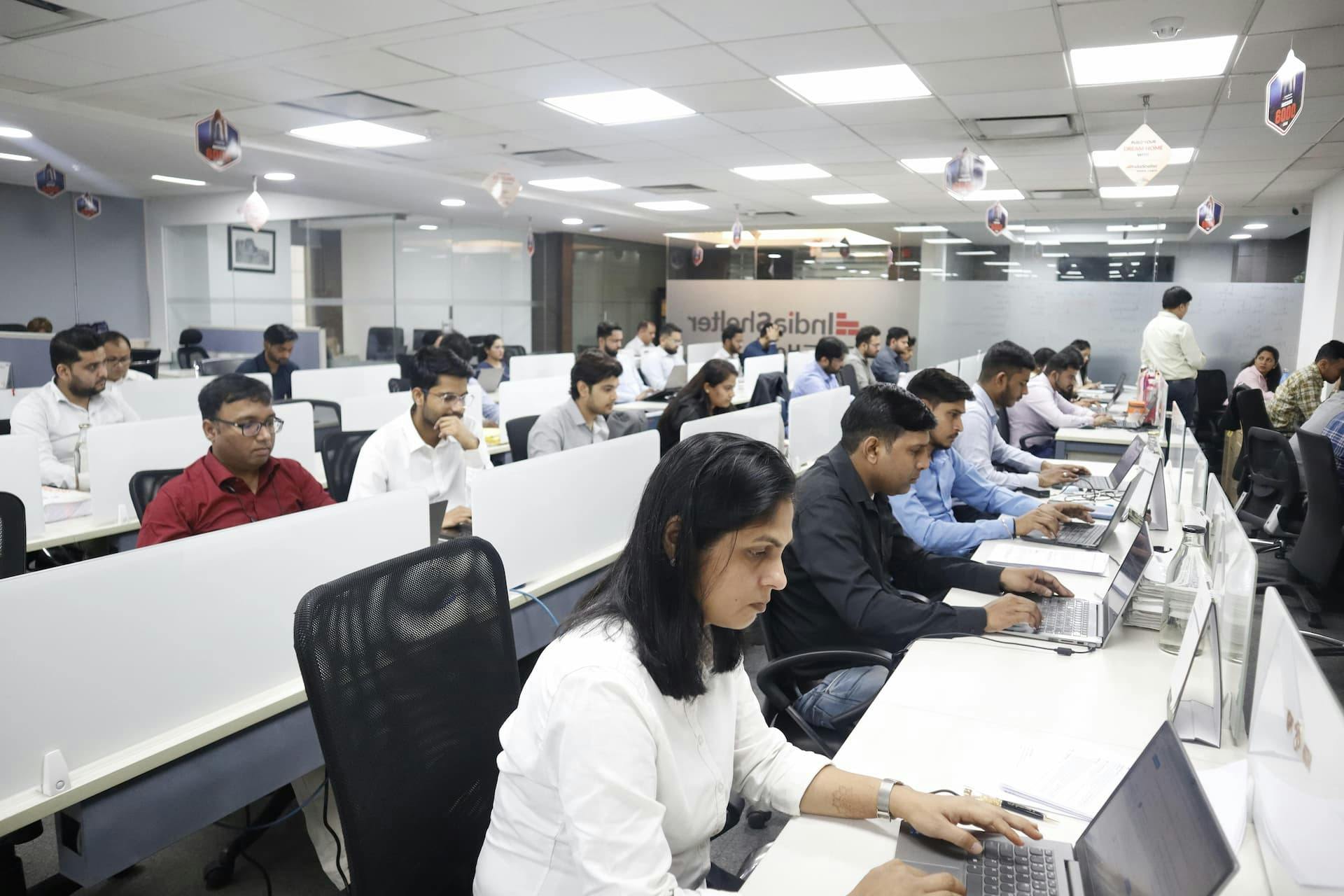How to Get a Home Loan with Low Credit Score

Published on :2024-09-19
Buying a home is a dream for many Indians. And it is understandable why? Being a homeowner not only gives you a roof over the head, but it also brings you a sense of security and stability – both financially and emotionally. But, with the rising prices of the properties, it is nearly impossible for anyone to fund the home purchase entirely with their savings. Therefore, taking a home loan can help you become a proud homeowner without much difficulty.
However, as easy as it may sound, getting a home loan greatly depends on your credit score or CIBIL (Credit Information Bureau India Limited) score as it defines your creditworthiness. Since a home loan is a long-term credit, the banks do a background check of your credit history and will sanction only if you have a good credit score or you meet their minimum credit score requirement, which is usually 750+.
But what if your credit score is less? Can you not avail of a home loan? Well, you don’t have to lose hope yet. You can still get the loan provided you do a few things right, which we discuss in this blog. So, read on.
But first, let us understand what a credit score is and how it works.
What is a credit score?
Credit score is a three-digit numerical value ranging from 300 to 900 that reflects your creditworthiness. The banks in India consider this as one of the most critical factors to determine your eligibility for any kind of loan or credit. The credit bureaus in the country like CIBIL collect financial data from the banks and other financial organisations in India to assess your credit behaviour and determine your credit score. The credit score assigned by CIBIL is called CIBIL score.
Generally, a credit score of 700 or more is considered a good score for availing loans. However, the minimum credit score requirement for a home loan may vary from one bank to another. The higher your credit score, and closer to 900, the better your chances of getting your home loan application sanctioned, and you may also get favourable terms.
How does credit score work?
The bureaus like CIBIL consider the following factors to calculate your credit score:
- Repayment history – If you have defaulted on your credit card bills or loan payments before, it will negatively affect your score.
- Credit utilisation ratio – This refers to the extent of credit you use against the limit available to you. If your credit utilisation ratio is high, say more than 70%, your score will be less. But, if you restrict it to less than 40%, it will have a positive impact on the credit score.
- Credit duration – A longer credit history can positively impact your score.
- Types of credit – Having a heady mix of secured and unsecured loans, such as credit cards, mortgage loans, and personal loans, can contribute to a higher credit score.
Did you know a high credit score can significantly reduce your EMIs? Learn how to improve your creditworthiness and unlock lower interest rates with our insightful guide, 'Easy Ways to Manage Home Loan EMI
How to get a home loan when you have a low CIBIL Score?
Let us assume Miss. Shivani Dubey, a 28-year-old salaried employee, wants to apply for a home loan, and her credit score is not up to the mark. Here is what she needs to do to get a home loan.
Take steps to improve the CIBIL score
If Miss. Dubey fails to meet the minimum credit score requirement of the lender with whom she wants to apply for a home loan; her priority must be to improve her credit score. A few simple steps, like paying off all the outstanding dues, fixing errors in the credit report, and regularising the EMI payments, can help her cause.
Avoid applying for a loan with multiple lenders simultaneously
While Miss. Dubey may be keen to buy her home and get her home loan sanctioned, she may apply for a loan with different lenders at the same time. However, this move could prove counterproductive for her. Every time she submits her application, the lender will initiate a credit check process with the credit bureau, and multiple inquiries at the same time will indicate her credit-hungry behaviour.
So, if Miss Dubey’s home loan application is rejected once due to her low credit score, she must wait a few months before applying for the home loan again while focusing on improving her credit score.
Apply for a joint home loan
Miss. Dubey can include a family member as a co-applicant for the home loan. However, the co-applicant must have a steady income source and a high credit score. This will significantly increase her chances of getting the loan sanctioned, and she may become eligible for a higher loan amount.
Apply for a loan with the existing lender
Let us assume that Miss Dubey has a personal or car loan with a certain lender and a good relationship with them. So, when she applies for a home loan with the same lender, she may have a better chance of getting the application sanctioned even with her low credit score.
Pay a higher down payment
Under usual circumstances, Miss Dubey would have to pay a down payment of up to 20% of the property’s value to qualify for a home loan. However, since her credit score is low, she can make a larger down payment to show the lender her strong financial condition. This may help her get her loan application sanctioned.
The Pradhan Mantri Awas Yojana (PMAY) is a government initiative that offers subsidies and easier loan options for low-income families. Considering an affordable home under PMAY? Learn more about eligibility and how to apply!
Conclusion
Getting a home loan with a low credit score is not impossible but it requires taking correct action. So, keep the above tips in mind while applying for a home loan and take a step closer to becoming a proud homeowner.
Related Blogs

2025-12-11
Common Mistakes to Avoid When Applying for a Home Loan in 2026
Planning to take a home loan in 2026? Don’t apply before reading this- learn about the top mistakes many borrowers make and how you can avoid them for smoother approval and lower long-term costs.

2025-07-30
How Green Homes Can Cut Your Electricity Bills by Up to 40%
Discover how simple eco-friendly changes in your home can reduce electricity bills by up to 40% and lower your carbon footprint. Start your green journey today!

2025-07-30
How Much Home Loan Can I Get with a ₹25,000 Monthly Salary?
Wondering how much home loan you can get on a ₹25,000 monthly salary? Find out your eligibility, loan amount, and smart tips to improve approval chances.
Disclaimer: *By contacting IndiaShelter on Toll Free/WhatsApp/Website or any other mode, you authorize our representatives to reach out to you through personal communication via SMS, WhatsApp and phone calls regarding our services. This consent will supersede any registration for any Do Not Call (DNC) / National Do Not Call (NDNC).
© India Shelter Finance Corporation 2024 | All rights reserved
Design with byCyberworx





